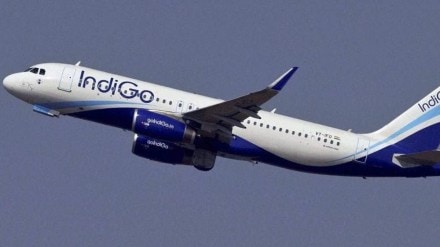IndiGo, the world’s seventh biggest airline by passenger volume, is embarking on an aggressive international expansion plan, while it continues its strong grip on the domestic turf.
During the pandemic, while competitors surrendered market share, IndiGo’s domestic market share breached 58% from about 48% pre-Covid. But now, as competition heats up with the consolidation under way at Tata group’s airlines and new entrants waiting in the wings, analysts see a shift in focus to increasing overseas flights. They also say this won’t be without challenges for IndiGo.
As of September 30, the airline was operating 25 international routes. In a conference call with analysts after announcing the Q2 results, newly appointed IndiGo CEO Pieter Elbers had said international operations in the quarter were up 20% sequentially, and expanding internationally would be one of the three pillars of growth going forward.
“We continue to recover from Covid and have deployed more than pre-Covid capacity. This has allowed us to make the best use of the opportunity presented by the robust demand in the market. International air travel has demonstrated a strong recovery, and we believe this will last, while domestic demand continues to rise in the festive and winter season. We have strengthened our international network by introducing new flights and frequencies to international routes … we have signed a new codeshare agreement with Virgin Atlantic. This will allow us access to new markets from London’s Heathrow airport to India,” Elbers had said.
Also Read: Sembcorp to acquire Vector Green Energy for Rs 2,780 cr
Other partnerships the airline has entered include those with Qatar Air, Turkish and Air France-KLM. Elbers did not reveal the new international destinations the airline is eyeing.
Kapil Kaul, CEO (Indian subcontinent and Middle East) at CAPA, told FE that IndiGo’s international expansion is logical, given the opportunities available, both regional and long haul. “India’s share pre-Covid in international traffic was about 35% and most of the traffic is taken by foreign airlines. In addition, international growth post-Covid recovery will be in double digits. IndiGo has a massive domestic network which can be fully leveraged. So the focus on international is in line with market structure,” Kaul said.
Another aviation analyst pointed to “overleveraging” by IndiGo in domestic operations, saying the airline operates from virtually every domestic airport with its fleet of ATRs and the A320 family aircraft, and there is limited room for further expansion within the country.
Satyendra Pandey, managing partner of aviation advisory AT-TV, said the focus on international is a logical evolution for a network which is at a critical mass and can deliver sizeable traffic flows that can be consolidated. “But international expansion will add several complexities, ranging from multi-currency payment processing to global marketing and distribution challenges. Travel patterns and preferences are also seeing drastic changes, with newer destinations like Vietnam, Cambodia and countries in Central Asia entering the consideration set. IndiGo will have to manage through the risk-return equation as international routes have varying patterns and revenue profiles. And these can change overnight given the new geopolitical realities,” Pandey said.
The impending churn in the domestic operations could, meanwhile, lead to a loss in market share for IndiGo. Kaul said the airline’s market share will eventually settle at 45-50%, once other airlines use their existing fleet and expand.
A significant factor that will determine the scope and nature of IndiGo’s international expansion is fleet type. Some analysts warn that unless the airline gets wide body aircraft, its overseas ambitions will remain restricted to medium range operations with A321s. The airline is already facing regulatory hurdles in overseas expansion. Recently, the DGCA granted the airline permission to lease wide body aircraft for just six months, instead of the two-year duration it had sought. Continued supply chain issues, leading to a significant number of aircraft on ground, could also impact international expansion.
Breaking into new markets would also mean having to deal with unpredictable actions by competitors such as price wars; this has happened in a few international markets earlier too. Mark Martin, CEO of Martin Consulting, says, “As a result of the blend of regulatory hurdles, choosing the right twin aisle fleet and a highly aggressive onslaught from international competitors through price wars, the next few financial years may place a higher level of strain on IndiGo’s global market standing.”
